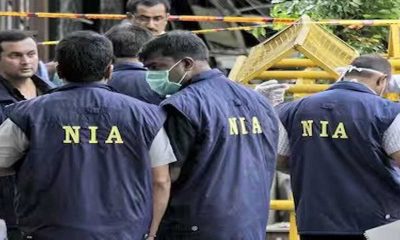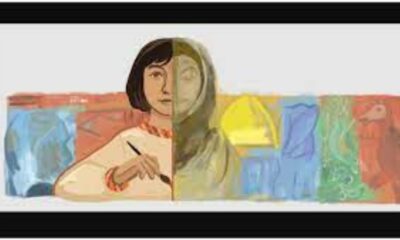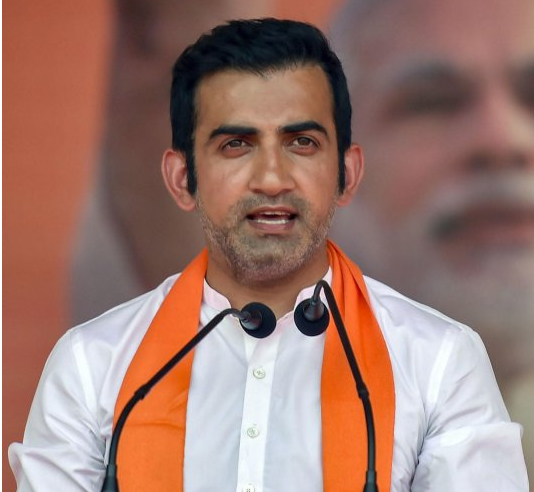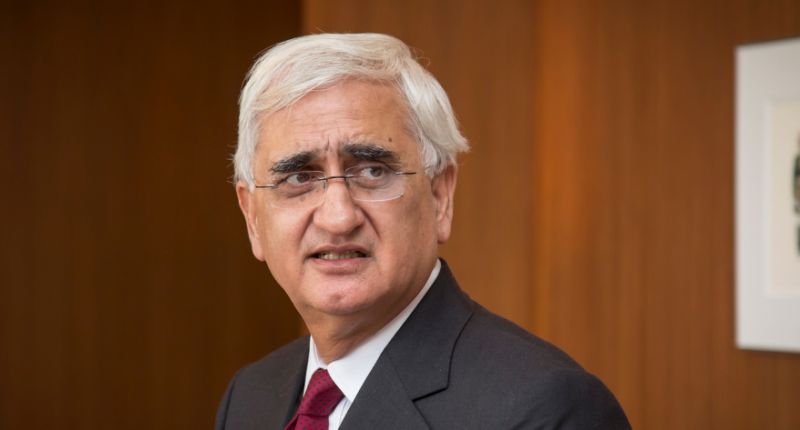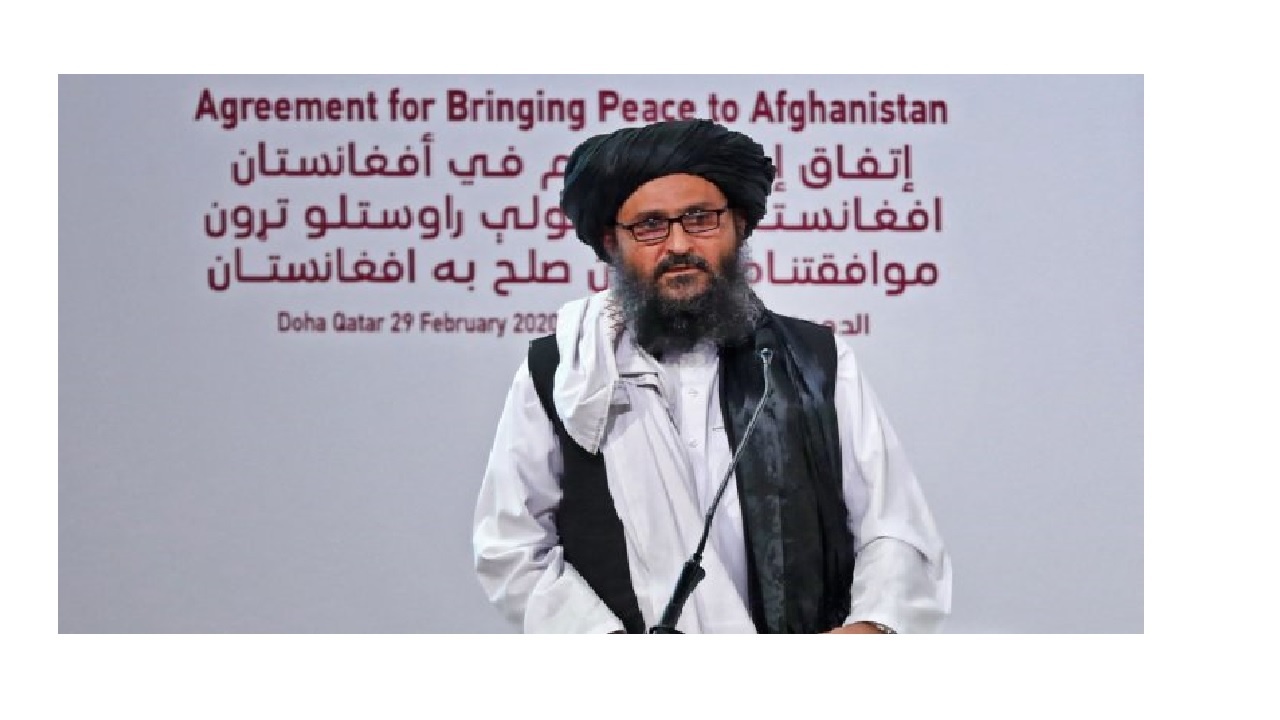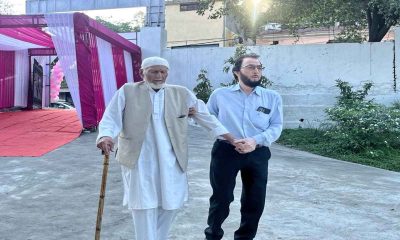Latest world news
Historical Grand Mosque destroyed in Mosul
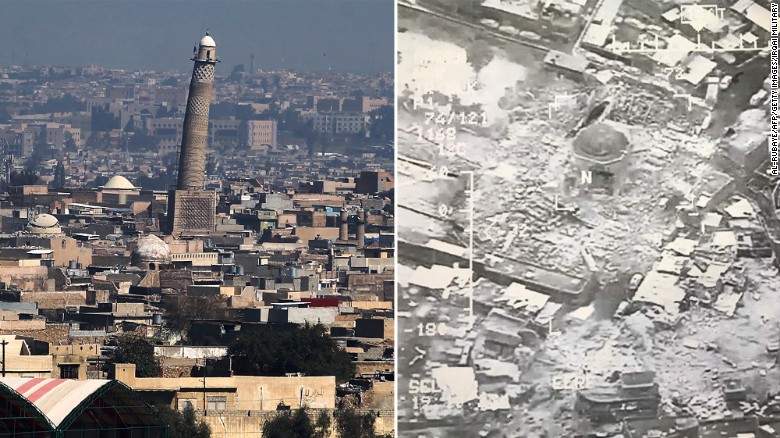
[vc_row][vc_column][vc_column_text]Baghdadi’s “Caliphate” vanished
The landmark grand al-Nuri mosque, where Abu Bakr al-Baghdadi announced establishment of “caliphate” in 2014, was destroyed on Wednesday.
There are conflicting reports about who destroyed the historical mosque. Iraqi Army and US blamed Daesh (IS) for destruction while terror outfit accused a US-led coalition air raid for the blow.
Iraq’s Prime Minister Haider al-Abadi denounced the destruction saying, “Blowing up the al Badba minaret and the al-Nuri mosque amounts to an official acknowledgement of defeat.”
Iraqi Army official leading the Mosul offensive Lt Gen Adulamir Yarallah said, “Our forces were advancing toward their targets deep in the old city and when they got to within 50 meters of the al-Nuri mosque, Daesh (IS) committed another historical crime by blowing up the mosque.”
Commander of Iraqi counter terrorism operations Lt Gen Abdul Ghani al-Assadi said on Wedneday, “We are no more going to drive them out of the old city, (instead) we are going to kill all of them (Daesh) in the coming days.”
US Army Major General Joseph Martin said that the mosque destruction showed IS brutality. “The responsibility of this devastation is laid firmly at the doorstep of IS,” he added.
Earlier on Wednesday, Iraqi forces had claimed to start a push towards the mosque. The US-led coalition is providing air and ground support to the Mosul offensive which began in October last year. On Tuesday, the armed forces had encircled IS stronghold in the old city.
Iraqi Ambassador to India Fakhri al-Issa told APN earlier this year that his government was trying to save Mosul city’s infrastructure, unlike Syria, as “reconstruction was much more difficult than destruction”.
Coalition spokesman US Air Force colonel John Dorrian denied IS allegation saying “we did not strike in that area”.
Experts believe that destruction of al-Nuri mosque has virtually marked the end of the (Daesh) IS in Iraq. The fall of Mosul would mark the end of Iraqi half of the “caliphate”, the other half being in Syria where vast areas were still under IS control. For IS, Mosul in Iraq was as important for them as Raqqa in Syria.
Abu Bakr al-Baghdadi had reportedly left Mosul to local commanders and is considered to be hiding in the border areas between Iraq and Syria. Coalition forces and other sources have many a time claimed that Baghdadi was killed in the ongoing offensive against the group.
During occupation of vast areas in Iraq and Syria, IS has rampaged through numerous heritage sites in the two countries. IS follows the Saudi-origin Wahabi school of thought, claiming to be a puritanical strain of Islam, which considers all religious shrines idolatrous.
In July 2014, the IS extremists destroyed another landmark in Mosul, the tomb of Jonah, considered to be a key figure in Christianity, Judaism and Islam. The terrorist group was also responsible for destroying iconic Palmyra archeological sites in Syria and Assyrian capital of Khorsabad in Iraq.[/vc_column_text][/vc_column][/vc_row]
Latest world news
World Earth Day 2024: Google Doodle showcases aerial view of planet’s natural beauty
Google celebrated Earth Day 2024 with a special doodle featuring an aerial view of our planet’s biodiversity.
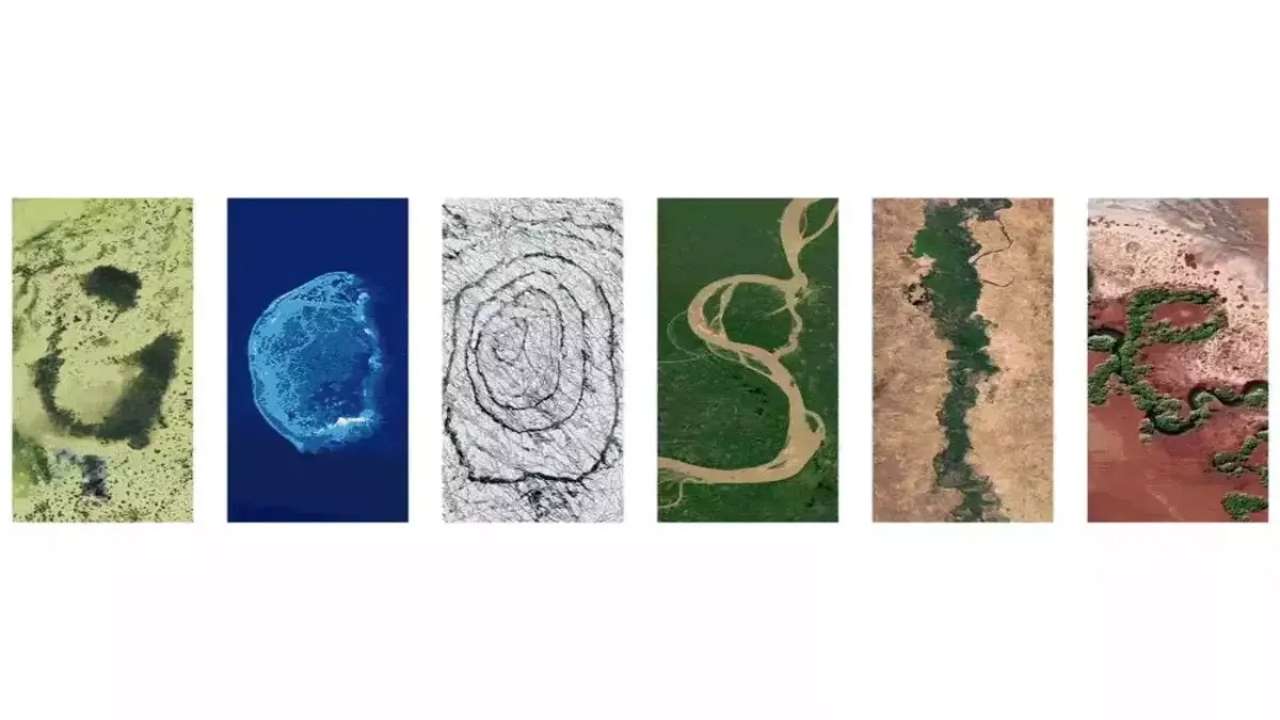
Google shared a doodle today to celebrate World Earth Day 2024, which showcased aerial photos of the planet’s biodiversity and natural beauty. Google reminded us of the importance of protecting planet earth for future generations with the help of this doodle.
The Google letters depict specific locations across the globe where people, communities, and governments work every day to help protect the planet’s natural beauty, biodiversity, and resources, according to the explanation of the annual Earth Day 2024 doodle on their website.
It said, these examples remind us that there’s much more to do to address the climate crisis and biodiversity loss, but also offer the promise of hope and optimism.
The islands of Turks and Caicos are represented by the letter “G.” The islands’ conservation efforts are concentrated on protecting important regions for biodiversity and addressing persistent environmental problems.
The largest reef in the southern Gulf of Mexico and a UNESCO biosphere reserve, Scorpion Reef National Park, is represented by the letter “O” in the Mexican flag.
The letter “O” features Iceland’s Vatnajokull National Park, which was designated as a national park in 2008 following decades of advocacy. The ecology within and surrounding the biggest glacier in Europe is safeguarded by this UNESCO World Heritage Site.
The letter “G” has the Jau National Park in Brazil on it. It is a UNESCO World Heritage Site and one of the biggest forest reserves in South America.
The Great Green Wall of Nigeria is represented by the letter “L,” and the Pilbara Islands Nature Reserves of Australia are represented by the letter “E.”
Meanwhile, Earth Day is a worldwide event that promotes protection of the environment every year. April 22 serves as a reminder of the importance of conservation efforts and sustainable practices to guarantee a healthier world and a brighter future.
The occasion inspires people across the world to come together and take action to protect the environment, strengthening our bonds with nature and promoting good change.
Latest world news
Bigg Boss 14 contestant Rahul Vaidya struggles walking in knee deep water, compares Dubai rains with Mumbai floods
Singer and TV personality Rahul Vaidya was recently stranded in the Dubai rains.

Rahul Vaidya, who was in Dubai ahead of his show which was scheduled to take place today, left the country due to heavy rains and reached Kolkata. The artist shared on social media his encounters in the UAE city, including challenges like walking through knee-deep water. Rahul provided an update regarding the heavy rainfall in Dubai on his Instagram profile.
The Bigg Boss 14 contestant revealed that he was in Kolkata and prepared to do an evening performance. Recalling the terrifying period he went through, Vaidya said there was a lot of confusion and panic in Dubai. The situation was similar to that when heavy floods hit Mumbai in 2005.
Vaiday also posted seval other images and videos of cars that were underwater and flooded roadways. The Bigg Boss 14 contestant, who shared his ordeal, claimed that even though it had just rained for two hours, the situation was dire.
In one of the video, which went viral he can be seen struggling in walking in knee-deep water. He can be also seen holding his sneakers in one hand and with other hand he was seen managing other things.
This is the result of the two hours of rain that it had, he can be heard saying in the video. Vidya also said he dosen’t believe Dubai is accustomed to a lot of rain. Everything had stopped working, he remarked.
After taking part in the first season of the singing reality show Indian Idol, Rahul Vaidya gained widespread recognition. In addition to Bigg Boss, he took part in Khatron Ke Khiladi 11.
Meanwhile, heavy rains that triggered flooding in the UAE and Bahrain, which left 18 people dead in Oman on Sunday and Monday, have paralyzed the financial hub of the Middle East, Dubai.
A lot of incoming flights were diverted from Dubai’s international airport because of the rain. At 7:26 p.m., the busiest airport in the world for foreign visitors stopped accepting new arrivals; a gradual resumption was announced for more than two hours later.
Images of planes navigating flooded tarmacs are making the rounds on social media.
According to pictures shared on social media, the flagship malls Dubai Mall and Mall of the Emirates both experienced heavy floods, while at least one Dubai Metro station had water up to the ankles.
There were several road collapses, severe flooding in residential areas, and numerous reports of leaks from windows, doors, and roofs.
Due to the unfavourable weather, schools around the United Arab Emirates were forced to close, and as more storms are predicted, the closures are anticipated to last until Wednesday. The government of Dubai allowed its staff to work remotely till this Wednesday.
Latest world news
Dubai sky turns green during storm in UAE, video goes viral
The UAE witnessed record-breaking rainfall on Tuesday and the National Centre of Meteorology recorded 254 mm of rainfall in less than 24 hrs in the Khatm Al Shakla area in Al Ain.

1 person was killed in UAE as it witnessed heavy rainfall on Tuesday, stranding commuters, flooding roads, disrupting trains and flights and resulting in water leakage from mall ceilings. The UAE witnessed record-breaking rainfall on Tuesday and the National Centre of Meteorology recorded 254 mm of rainfall in less than 24 hrs in the Khatm Al Shakla area in Al Ain. It is being said that the rainfall was the highest documented since the start of data collection in 1949.
The heavy rainfall in UAE came days after a similar situation in neighbouring Oman, where 13 people were killed in flash floods. Many parts of Oman saw torrential rains, which caused students to be trapped in buses and swept away motorists and trapped people in their homes.
Videos from Dubai circulating on social media showed widespread waterlogging on roads in Abu Dhabi, Dubai and other important cities. This left daily commuters in cars and other vehicles struggling to get back home. Dubai metro station too was seen flooded and closed.
One such video circulating on social media shows the aerial view of the city of Dubai from the top of a building. In the video the stormy winds are seen blowing over the city of Dubai. As the storm intensifies the Dubai sky turns green and ultimately gets covered by heavy rainfall. The video has gone viral on social media with more than 1.1 million views.
Another video showed water leakage from the ceilings of shopping malls, flooding the floors and destroying goods. A video which was shot in the famous Mall of the Emirates, showed pieces of ceiling falling as the rainwater gushed inside. Videos from many outlets of the Deira City Centre mall chain showed escalators being rendered unusable. Majid Al Futtaim, the company which owns the Mall of Emirates, said that the shopping complexes have been kept open and the customers are being sent away from the flooded areas.
-

 Cricket news20 hours ago
Cricket news20 hours agoTelugu superstar Mahesh Babu meets SRH captain Pat Cummins, says it is an absolute honour
-

 Entertainment23 hours ago
Entertainment23 hours agoAamir Khan to begin shooting in Delhi for Sitaare Zameen Par next month
-

 2024 Lok Sabha Elections23 hours ago
2024 Lok Sabha Elections23 hours agoBollywood actor Neha Sharma campaigns for her father Ajit Sharma in Bhagalpur, Bihar
-

 Cricket news22 hours ago
Cricket news22 hours agoAB De Villiers criticizes RCB’s decision to let go Yuzvendra Chahal, says it was a hearbreaking moment
-
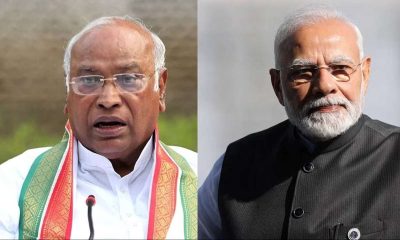
 2024 Lok Sabha Elections20 hours ago
2024 Lok Sabha Elections20 hours agoMallikarjun Kharge writes to PM Modi seeks time to explain Congress’s Nyay Patra
-

 Trending19 hours ago
Trending19 hours agoSocial media user shares video of Air India ground staff throwing expensive musical instruments, video goes viral
-

 2024 Lok Sabha Elections4 hours ago
2024 Lok Sabha Elections4 hours agoPM Modi calls for high voter turnout in second phase of Lok Sabha elections 2024, says your vote is your voice
-

 India News3 hours ago
India News3 hours agoSalman Khan house firing case: NIA interrogates arrested shooters Sagar Pal, Vicky Gupta for three hours

